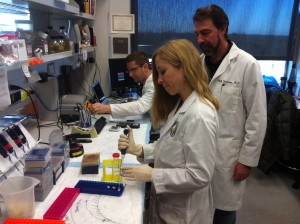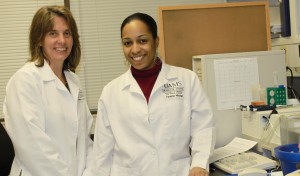 For someone starting out in his or her career, a mentor can be a critical part of success. Mentors provide knowledge, support and networking opportunities. They help their protégés learn from their own experiences, successes and mistakes. But mentoring is more than simply answering occasional questions or providing help to the new kid on the block when he asks for it. It’s about an ongoing relationship of learning and guidance.
For someone starting out in his or her career, a mentor can be a critical part of success. Mentors provide knowledge, support and networking opportunities. They help their protégés learn from their own experiences, successes and mistakes. But mentoring is more than simply answering occasional questions or providing help to the new kid on the block when he asks for it. It’s about an ongoing relationship of learning and guidance.
In choosing a professional mentor, it’s helpful to find someone based on similar interests and career aspirations. Consider who has the skills you would like to strengthen or develop and whose work you admire. A potential mentor’s personality and communication style should match yours. He or she should be able to relate to and empathize with your goals or challenges in order to provide the most effective counsel. For instance, a female mentor raising a family might become a strong role model for a young woman struggling to balance work and home life. The relationship you build with a mentor should encourage open discussion of career and workplace issues.
Strong mentors will expect the best from their students. He or she will provide an encouraging, supportive, and safe environment for fulfilling those expectations. We have found this to be true in the world of scientific research. Students know they can depend on mentors to give them their best efforts in both the direction of research and as a trusted counselor to help navigate careers. Workplaces and organizations with formal mentoring programs often provide guidelines for roles and responsibilities that ensure a positive experience.
 In a successful mentoring relationship, mentors get something out of it, too. They appreciate the youthful spirit, energy and fresh and creative minds that keep them optimistic and engaged. They enjoy watching their protégés get inspired, work passionately and succeed. Commitment to excellence in mentoring is a win-win situation for both mentee and mentor.
In a successful mentoring relationship, mentors get something out of it, too. They appreciate the youthful spirit, energy and fresh and creative minds that keep them optimistic and engaged. They enjoy watching their protégés get inspired, work passionately and succeed. Commitment to excellence in mentoring is a win-win situation for both mentee and mentor.
Allan Butterfield, Ph.D., is a professor of biological chemistry at the University of Kentucky. He is the co-recipient of the 2014 SFRBM Mentoring Excellence award.
— Published
Category: Education
SFRBM has entered the blogosphere! This new blog is where the Society’s members can share observations, experiences, challenges and successes related to the work they do. The intent is not to create another publication vehicle for research papers, but we do want it to expand our online presence and strengthen the SFRBM name with a broader audience. The blog also will be another way for our members to connect and learn from each other.
 We want to know about day-to-day life as a scientist. Explain, in the most basic terms, your current research and why it matters to science and medicine. Describe the most rewarding or frustrating days and the breakthroughs. Tell us about your collaborators and mentors, stories from the classroom, or the career path that led you to the place you are today. This blog can become a collective voice to help us demystify our very complex work for a general audience and inspire new interest in what we do.
We want to know about day-to-day life as a scientist. Explain, in the most basic terms, your current research and why it matters to science and medicine. Describe the most rewarding or frustrating days and the breakthroughs. Tell us about your collaborators and mentors, stories from the classroom, or the career path that led you to the place you are today. This blog can become a collective voice to help us demystify our very complex work for a general audience and inspire new interest in what we do.
All SFRBM members are encouraged to offer submissions to be considered for our blog. Here’s how to do it. Visit http://carneycommunications.com/sfrbm, and complete the online form with your professional information. “Blog Submission” is one of the optional fields to fill in; put the text for your suggested blog post there, and it will be reviewed.
We’re looking forward to hearing from you!
 Neil Hogg, Ph.D. SFRBM President
Neil Hogg, Ph.D. SFRBM President
— Published